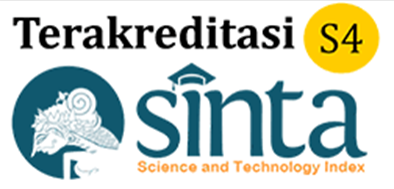Analysis of Citizen Reluctance in Legislative Service: Experience from the Indonesian Parliament
Abstract
This study discusses SIDUMAS, a digital platform developed by the Indonesian House of Representatives (DPR-RI), to accommodate public aspirations and complaints. The goal is to strengthen communication and transparency between legislative institutions and citizens. Although this platform brings several advantages, such as faster processes and easier access, many people still have not utilized it. It shows a gap between the government’s enthusiasm in building a digital system and the public’s readiness to use it. The results revealed that low digital literacy, lack of information about SIDUMAS, and low trust in legislative institutions are the main factors that hinder public participation. Therefore, the success of this service is highly dependent on efforts to improve digital understanding, build trust, and socialize this platform comprehensively. Finally, this study contributes to how the application of technology, such as SIDUMAS, can be utilized in public services and various government institutions, more specifically, considering the community’s user preferences. This finding also underlines that digital innovation is not enough just to be available; it must be adapted to the community’s social conditions and be easily accessible to all groups.
References
Bodó, B., & Janssen, H. (2022). Maintaining trust in a technologized public sector. Policy and Society, 41(3), 414–429. https://doi.org/10.1093/polsoc/puac019
Creswell, J. W., & Poth, C. N. (2016). Qualitative inquiry and research design: Choosing among five approaches. Sage publications.
Fatimah, Hj. S., Sriningsih, S., Pascayanti, Y., & Yusuf, F. (2023). Digital Divide Solutions and Public Service Policy Implementation in Indonesia after the Covid-19 Pandemic. JOURNAL OF ECONOMICS, FINANCE AND MANAGEMENT STUDIES, 06(08). https://doi.org/10.47191/jefms/v6-i8-30
Garcia, M. L., Mizrahi, T., & Korazim-Kőrösy, Y. (2022). The complexity of community participation: Professional perspectives on the definition and inclusion of community. Community Development, 53(4), 413–428. https://doi.org/10.1080/15575330.2021.1959361
Kaiser, Z. R. M. A. (2024). Smart governance for smart cities and nations. Journal of Economy and Technology, 2, 216–234. https://doi.org/10.1016/j.ject.2024.07.003
Kartiasih, F., Djalal Nachrowi, N., Wisana, I. D. G. K., & Handayani, D. (2023). Inequalities of Indonesia’s regional digital development and its association with socioeconomic characteristics: a spatial and multivariate analysis. Information Technology for Development, 29(2–3), 299–328. https://doi.org/10.1080/02681102.2022.2110556
Khatibi, F. S., Dedekorkut-Howes, A., Howes, M., & Torabi, E. (2021). Can public awareness, knowledge and engagement improve climate change adaptation policies? Discover Sustainability, 2(1), 18. https://doi.org/10.1007/s43621-021-00024-z
Larasati, Z. W., Yuda, T. K., & Syafa’at, A. R. (2023). Digital welfare state and problem arising: an exploration and future research agenda. International Journal of Sociology and Social Policy, 43(5/6), 537–549. https://doi.org/10.1108/IJSSP-05-2022-0122
Liang, D., De Jong, M., Schraven, D., & Wang, L. (2022). Mapping key features and dimensions of the inclusive city: A systematic bibliometric analysis and literature study. International Journal of Sustainable Development & World Ecology, 29(1), 60–79. https://doi.org/10.1080/13504509.2021.1911873
Luna, D. E., Picazo-Vela, S., Buyannemekh, B., & Luna-Reyes, L. F. (2024). Creating public value through digital service delivery from a citizen’s perspective. Government Information Quarterly, 41(2), 101928. https://doi.org/10.1016/j.giq.2024.101928
Murdha Anggara, S., Hariyanto, A., Suhardi, Akhmad Arman, A., & Budi Kurniawan, N. (2024). The Development of Digital Service Transformation Framework for the Public Sector. IEEE Access, 12, 146160–146189. https://doi.org/10.1109/ACCESS.2024.3406571
Nikiforova, A. (2021). Smarter Open Government Data for Society 5.0: Are Your Open Data Smart Enough? Sensors, 21(15), 5204. https://doi.org/10.3390/s21155204
Osborne, S. P., Powell, M., Cui, T., & Strokosch, K. (2022). Value Creation in the Public Service Ecosystem: An Integrative Framework. Public Administration Review, 82(4), 634–645. https://doi.org/10.1111/puar.13474
Panagiotopoulos, P., Klievink, B., & Cordella, A. (2019). Public value creation in digital government. Government Information Quarterly, 36(4), 101421. https://doi.org/10.1016/j.giq.2019.101421
Raihan, M. M. H., Subroto, S., Chowdhury, N., Koch, K., Ruttan, E., & Turin, T. C. (2024). Dimensions and barriers for digital (in)equity and digital divide: a systematic integrative review. Digital Transformation and Society. https://doi.org/10.1108/DTS-04-2024-0054
Sung, C. S., & Park, J. Y. (2021). Understanding of blockchain-based identity management system adoption in the public sector. Journal of Enterprise Information Management, 34(5), 1481–1505. https://doi.org/10.1108/JEIM-12-2020-0532
Zulmasyhur, Z., Setiawan, H. D., & L. W., N. P. (2024). Enhancing governance through digital transformation. Jurnal Governansi, 10(1), 127–136. https://doi.org/10.30997/jgs.v10i1.11544
Copyright (c) 2025 Jurnal Manajemen dan Ilmu Administrasi Publik (JMIAP)

This work is licensed under a Creative Commons Attribution 4.0 International License.












